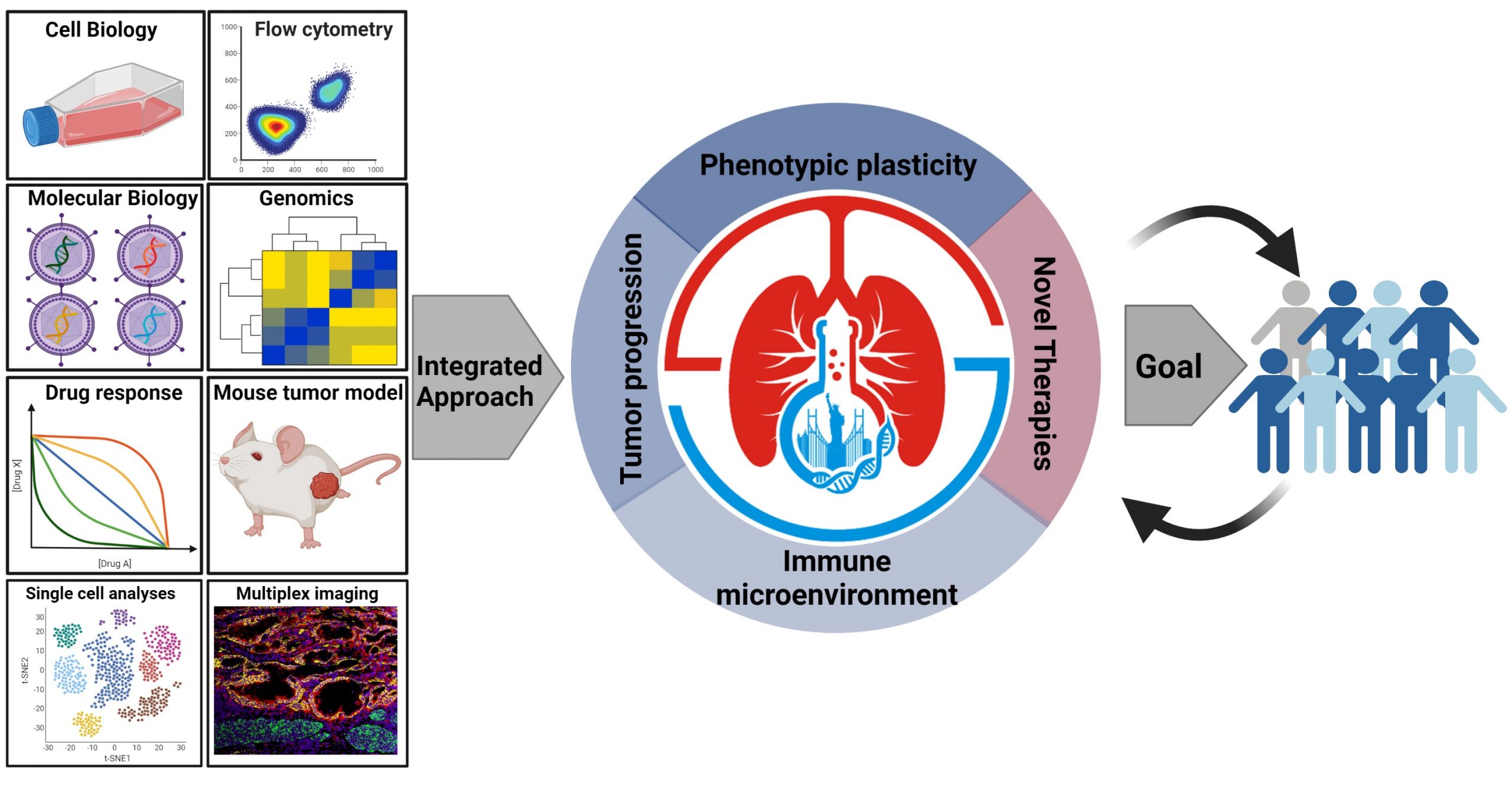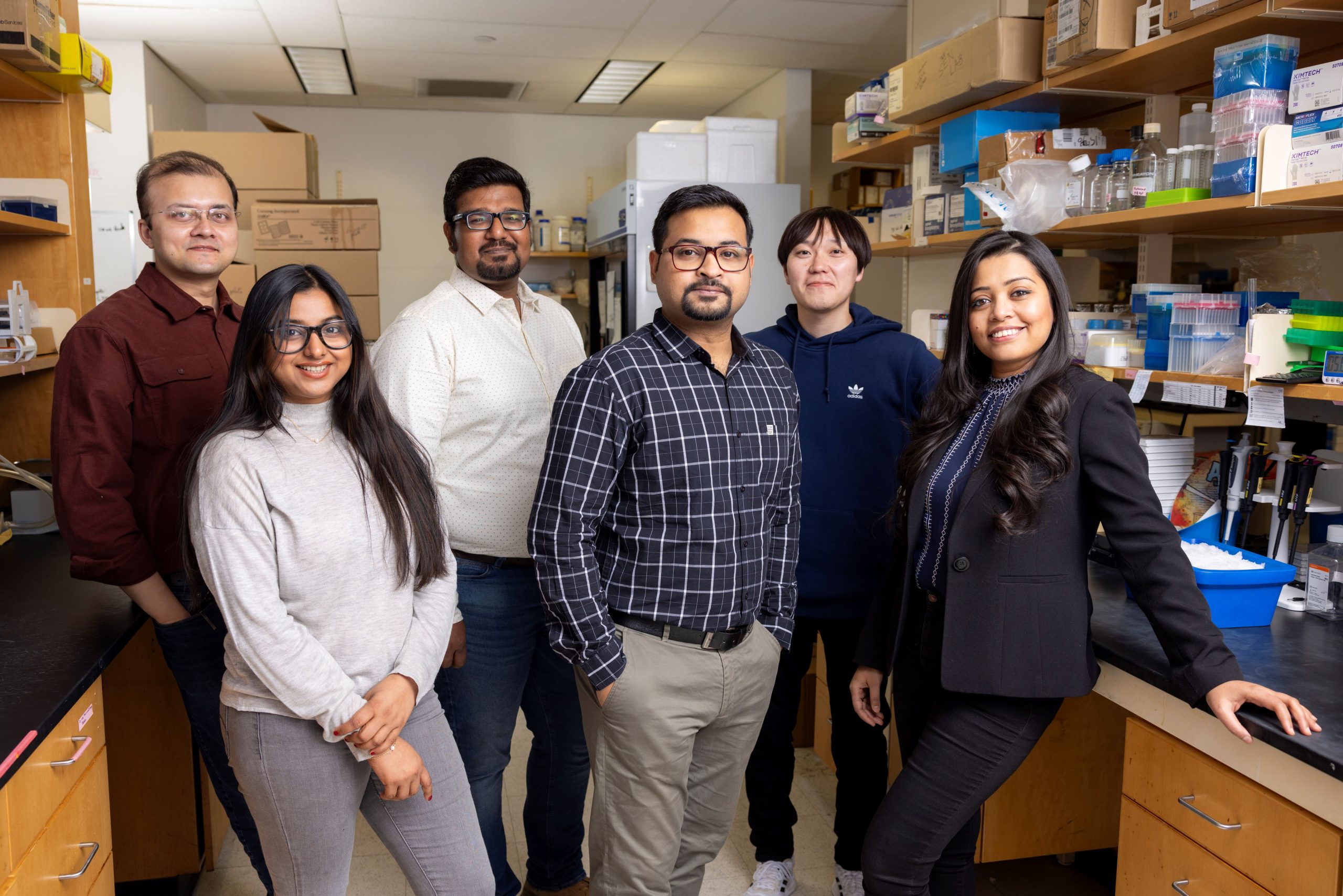
The Sen lab focuses on the development of new treatment paradigms for clinically relevant molecular subsets of lung cancer, the leading cause of cancer mortality. Situated in the Icahn School of Medicine at the Mount Sinai Medical Center, New York, the Sen-Lab is taking an inter-disciplinary approach to study basic mechanisms and biological principles of tumor pathogenesis with a focus on lung cancer. We aim to elucidate the fundamental principles of cancer initiation, progression, and therapeutic response and resistance and to translate the findings to improve outcomes of patients with lung cancer.
The overall goal of this research program spanning basic mechanistic discoveries, application of high throughput technologies, validation in cancer relevant mouse models, and translation platform is to understand the fundamental principles driving tumor progression spanning both cancer cell intrinsic signaling and contributions from the tumor microenvironment to improve therapy and survival of patients with lung cancer.
Major Subtypes of Lung Cancer
Lung cancer is the leading cause of cancer-related death worldwide accounting for an estimated 100, 000 deaths annually in the United States. There are two main types of lung cancer: small cell lung cancer (SCLC) and non-small cell lung cancer (NSCLC). A third less common type of lung cancer is called carcinoid.
1. Non-Small Cell Lung Cancer: NSCLC accounts for about 80% of lung cancer diagnosis, which are typically adenocarcinoma, squamous cell carcinoma, or large cell carcinoma.
- Adenocarcinoma: Comprises about 40% NSCLC diagnosis and is often found in an outer area of the lung. Adenocarcinoma develops in the cells of epithelial tissues that line the cavities and surfaces of the body and form glands.
- Squamous cell carcinoma: Comprises about 30% of NSCLC diagnosis and usually found in the center of the lung next to an air tube (bronchus)
- Large cell carcinoma: Occurs in any part of the lung and tends to grow and spread faster than adenocarcinoma or squamous cell carcinoma.
2. Small Cell Lung Cancer: SCLC is a high-grade neuroendocrine cancer that accounts for 20% of lung cancers and is typically metastatic at diagnosis. Annually, SCLC causes more than 200,000 deaths worldwide, ~30,000 deaths in the United States, has a dismal median overall survival of approximately one year, and a two-year survival rate below 5% for advanced disease.
Contact Us
Principal Investigator
Triparna Sen, PhD
Associate Professor
Co-Director, Lung Cancer PDX Program
E-mail
triparna.sen@mssm.edu
Lab Address
Icahn School of Medicine at Mount Sinai
1425 Madison Avenue, 15th Floor
New York, NY 10029
United States
Office Address
1425 Madison Avenue, 15th Floor
New York, NY 10029
United States








